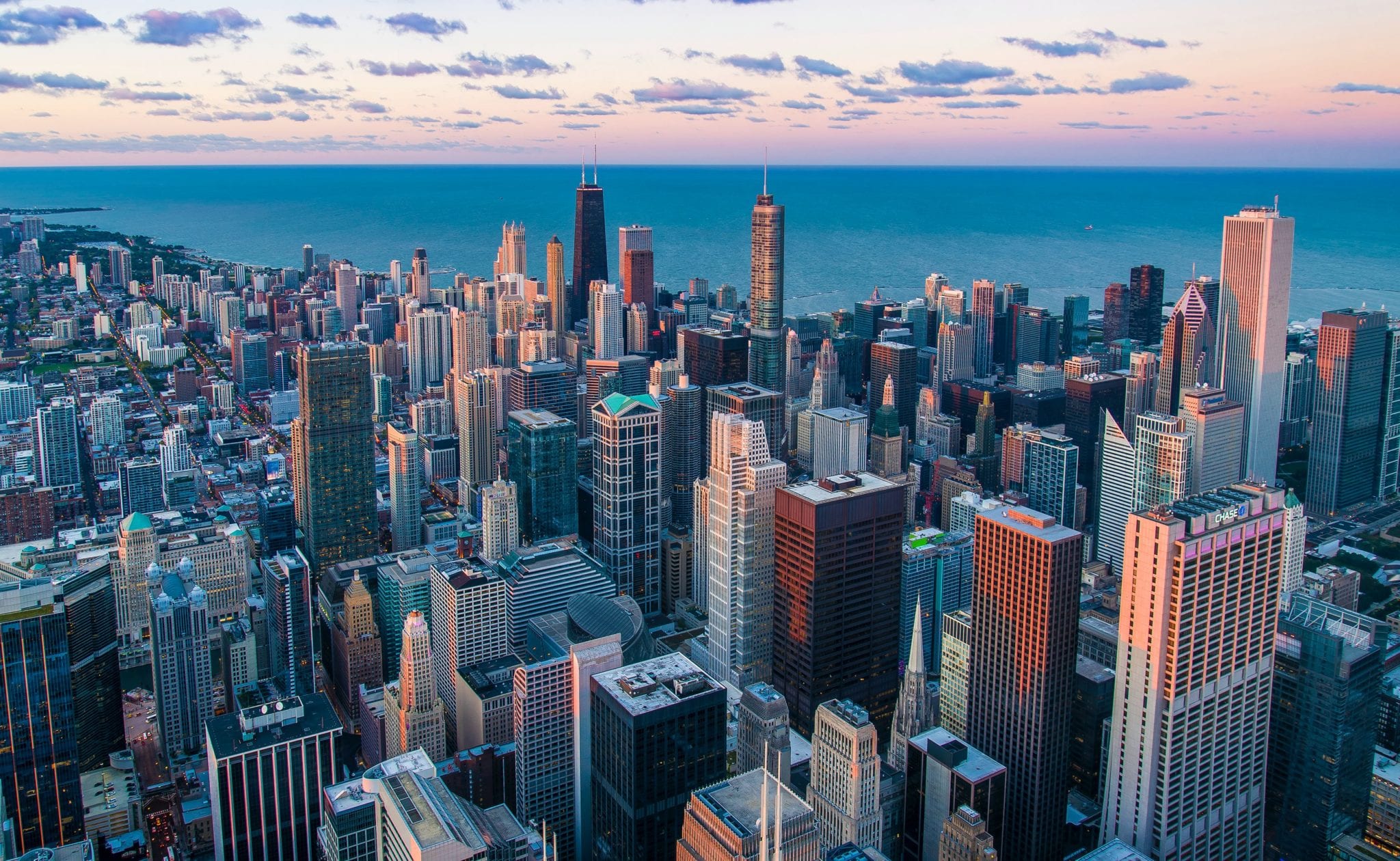
The City of Chicago is very well known for its blistering winds. There is so much wind that people can experience it inside tall buildings. The SkyDeck at Willis Tower and the Observation Deck at Hancock Tower is not just known for the incredible city view. Visitors can feel the buildings swaying back and forth from all the wind gusting through the air. The question is, what causes these powerful winds to blow through the streets of Chicago?
Chicago weather is chaotic and changes faster than the seasons. However, the most evident reason for these strong winds is Lake Michigan being right by the city’s side. There is nothing better than experiencing a fresh cool breeze on a humid day while Divvy biking down lakeshore drive or riding the ferris wheel at Navy Pier. The pier is right by the lakefront and is the perfect place to enjoy the summer on a weekend getaway.
The wind does not just occur at the Pier or while tanning on North Avenue Beach. Lake Michigan has a natural breeze that blows off the great lake and into the streets of the city. That means the wind can be felt while shopping down Michigan Avenue or walking through Millennium park. The temperature of the breeze changes based off of the coolness of the lake. Chicagoans can enjoy a nice cool breeze in the summer and fight through a frigid cold breeze in the winter. Many say this is why Chicago is known as “The Windy City”.
Although the windy weather factors into Chicago’s great nickname, there is a theory that it is not the only explanation as to why the city is called “The Windy City”. In fact, Chicago is not the windiest city in the U.S and is not significantly windier than any other city in the United States. The average annual wind speed for Chicago is 10.3 MPH. Meteorological surveys often rate New York, San Francisco, and Boston as having higher average wind speeds. If Chicago is not the windiest city, then why is it called “The Windy City”?
A popular theory states that Chicago’s nickname is actually a reference to its residents and politicians. The politicians were considered to be “full of hot air” which leads to the windy city metaphor.There are a lot of people who agree with this popular theory, but it is still unclear where it originally originated.
One editorial that is often credited in creating the nickname was published in the New York Sun newspaper back in the late 19th century. Editor of the New York Sun, Charles A. Dana, published an editorial where he referred to Chicago as a “windy city.” He used this metaphor referring to the windbag politicians in Chicago. At the time, there were politicians advocating to have the 1893 World’s Columbian Exposition in Chicago instead of in New York. Chicago and New York were in competition, and Dana warned readers to ignore the nonsensical claims the politicians were making in that windy city. He described the words coming out of their mouths as “bellowing”. Although Dana’s article is often credited in creating the nickname, there have been other articles uncovered that use the term “windy city” several years before Dana’s article was even created.
While some believe the nickname comes from the citizens, others believe that the nickname is used both as a metaphorical jab at its citizens and as a literal reference to its weather. The Cincinnati Enquirer published an article in 1876 with the headline “THAT WINDY CITY. Some of the Freaks of the Last Chicago Tornado.” The article used the term “Windy City” to describe speakers who were full of wind and also referenced a windstorm in Chicago. This leads people to believe that the nickname “Windy City” started as a remark about the weather and then took on a double meaning in the late 19th century.
So does anyone really know why Chicago is called “The Windy City? Did it come from the weather or did it come from its people? The meaning of the nickname and how it was started is still up for debate. Although no one seems to know for sure, there is no other nickname that fits Chicago better than the Windy City!
Written By: Megan Collins
